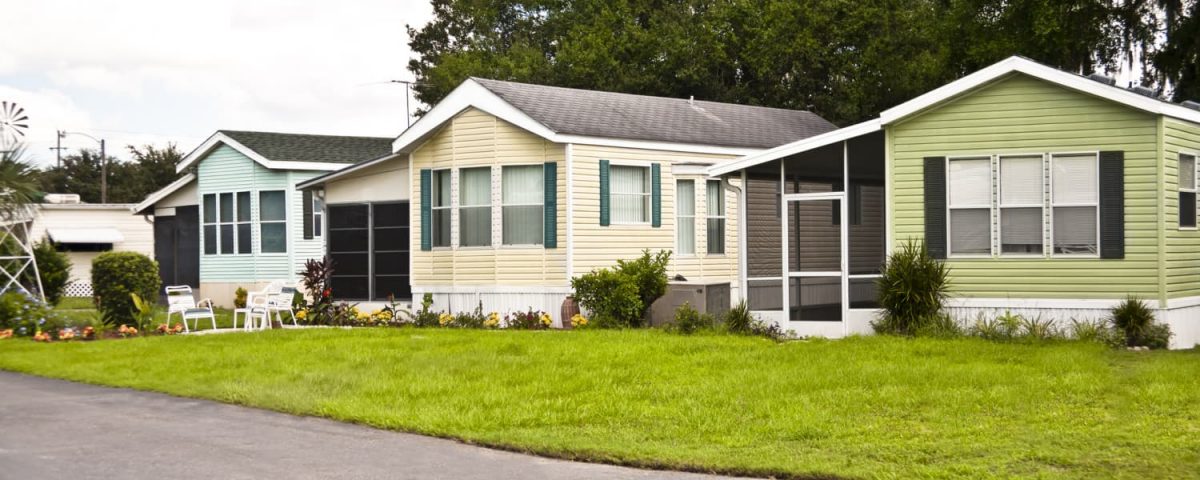- Privacy On Demand
- 020 8150 0080
- 0845 3886618
- info@priviglaze.com

Over 700 exhibitors confirmed for ISE 2022
27 February 2022
Sleeping with a system: Bed Ais by riposa
27 February 2022Planning to Buy a Mobile Home? Here’s What to Know

[ad_1]
Since the eve of the pandemic in January 2020, median home values have shot up 31 percent, or $77,000. Real estate experts predict single-family home costs will continue climbing in 2022, according to a new report from Zillow.
With the lagging inventory and skyrocketing home values, affordable housing has become a pressing issue, with cities loosening building codes to accommodate backyard ADUs and converting underused parking garages into apartments.
But real estate experts say they’re also seeing an uptick in first-time buyers who are interested in mobile homes — an option that’s been around for a century but is becoming increasingly relevant in today’s market. Buyers are not only in search of affordable options, but a new wave of remote workers are also interested in more flexible living options.
What To Know About the Mobile Home Boom
More than 22 million people in the United States live in manufactured homes, and, in many parts of the United States, these homes are the least expensive kind of housing available, according to the Manufactured Housing Institute.
A quick explainer, though: While mobile homes and manufactured homes are both built in factories, manufactured homes are set up at a permanent location while mobile homes can be moved after they’ve been set up on lots or on plots of land. So, mobile home living is an umbrella term with a variety of options, from renting a lot space, to buying land for a pre-manufactured home, to potentially moving your mobile home to a new location as it suits you.
“With the real estate market moving in its current trajectory, it’s no surprise that some homebuyers are opting for the mobile home,” says Matt Woods, co-founder and CEO of SOLD.com. “There are certainly pros to purchasing a mobile home, such as flexibility in location. Not only are mobile homes more affordable overall, but they also typically cost less per square foot.”
Woods also points out that mobile homes are created in a controlled setting, and oftentimes are built to a higher standard because they’re not prone to the elements like moisture that affect on-site construction.
While mobile homes can save you money, buyers should be aware of escalating lot fees and other costs. The average price per square foot for a manufactured home is $57, compared to $119 per square foot for a site-built home with a foundation, according to MHI.
Meanwhile, the average sales price of a new manufactured home without land is $81,900. If you’re renting a lot for your mobile home, those costs vary by location ranging from under $250 in Texas to just over $700 in California, according to 2018 figures from Mobile Home Living, an organization for mobile homeowners.
Since mobile homes are more affordable to manufacture, that may free up more money in your budget to purchase a bigger lot, or opt for upgrades or customizations.
However, if you’re planning to rent a lot in a mobile home park, NPR recently reported that some investors are buying up parks, significantly raising fees, and evicting people. Boyd Rudy with Dwellings Michigan says he’s noticed that some mobile home parks have put restrictions on the age of the homes allowed to rent lots in the park.
Just like buying a traditional single-family home, there are loan programs geared toward purchasing mobile homes as well as lots. Under the Title 1 program, FHA-approved lenders can loan to those who are looking to purchase a manufactured home, lot, or both, so long as it’s used as a primary residence for the borrower. For homes placed on a leased lot, the maximum loan amounts are $68,678 for a manufactured home; $23,226 for a lot; and $92,904 for a manufactured home and lot.
While an advantage of homeownership is often that your home will appreciate in value over time, Jason Simard, Realtor and owner of Sims Real Estate Group in British Columbia, points out that it’s not actually the home itself that goes up in value, but rather the land. Since mobile homes do not come with land, they do not go upward in value, he explains, which can make them difficult to re-sell. Still, the recent interest in mobile home living has bucked past trends.
[ad_2]
Source link

